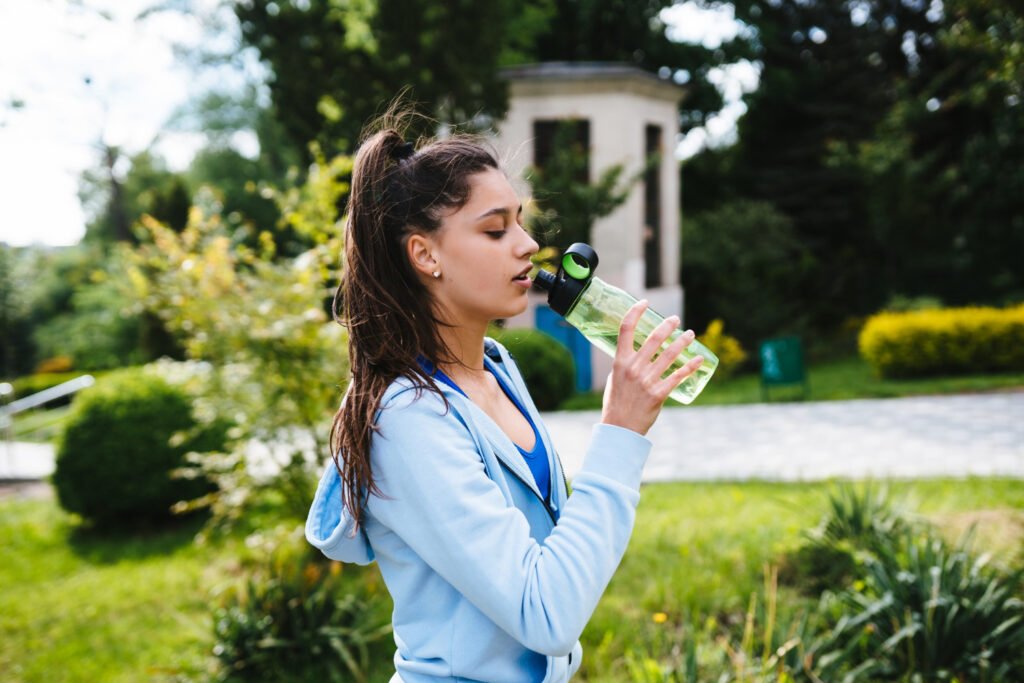
In this article
overview
Staying hydrated is essential for overall health, but did you know that when you drink water can be just as important as how much you drink? Most people focus on meeting their daily water intake goals, but the timing of your hydration can significantly impact how your body functions throughout the day. In this guide, we’ll explore the best times to drink water and why it matters. By strategically timing your water intake, you can boost energy, enhance digestion, improve physical performance, and even reduce headaches. Ready to optimize your hydration? Let’s dive in.
Early Morning Hydration
First Thing After Waking Up
Your body works hard during sleep, and after a long night’s rest, it’s often dehydrated. Drinking water immediately upon waking can help kickstart your metabolism, flush out toxins, and rehydrate your cells. For an added boost, try adding a slice of lemon to your morning glass. This not only enhances the flavor but also provides a dose of vitamin C, potassium, and antioxidants, setting a positive tone for the rest of your day.
Pre-Meal Preparation
30 Minutes Before a Meal
Drinking water about half an hour before eating can prepare your digestive system for the upcoming meal. It primes your stomach and intestines, helping them absorb nutrients more effectively. However, it’s important to avoid drinking large amounts of water immediately before or after a meal, as this can dilute digestive juices and hinder the process. Instead, wait about an hour after eating to drink more water, ensuring your body has ample time to digest and absorb the nutrients.
During and After Exercise
Before, During, and After Physical Activity
Exercise increases your body’s need for water. As you sweat, you lose fluids that must be replenished to maintain optimal performance and prevent dehydration. Start by drinking 16 to 20 ounces of water before your workout. During exercise, aim for 6 to 12 ounces every 10 to 15 minutes, depending on the intensity and duration of the activity. Afterward, rehydrate with another 16 to 24 ounces to replace the fluids lost through sweat. Consistent hydration can improve endurance, reduce fatigue, and help your muscles recover more efficiently.
Combatting Illness
When You’re Feeling Under the Weather
Hydration becomes even more critical when you’re sick. Symptoms like fever, vomiting, and diarrhea can cause rapid fluid loss, leading to dehydration if not managed properly. Drinking plenty of water helps to alleviate these symptoms, supports your immune system, and aids in recovery. Avoid alcohol and caffeinated beverages during illness, as they can further dehydrate your body. Instead, focus on water, herbal teas, and electrolyte-rich drinks to maintain hydration
Smart Hydration Strategies
Creating a Daily Water Schedule
If you struggle to drink enough water throughout the day, establishing a routine can help. Here’s a simple schedule to ensure you stay hydrated:
- 7:00 AM: Start your day with a glass of water right after waking up.
- 9:00 AM: Have another glass to kick off your workday.
- 11:30 AM: Drink a glass 30 minutes before lunch to aid digestion.
- 1:30 PM: Rehydrate an hour after lunch to help with nutrient absorption.
- 3:00 PM: During your mid-afternoon break, opt for water to refresh your mind.
- 5:00 PM: A glass of water in the late afternoon can curb evening cravings.
- 8:00 PM: Sip on water an hour after dinner and before showering.
- 10:00 PM: Finish your day with a glass of water an hour before bed to support overnight hydration.
Staying Hydrated on the Go
During Travel and Massage
Traveling, especially by plane, can be dehydrating due to the low humidity levels at high altitudes. Always carry a refillable water bottle and make a conscious effort to drink regularly during your flight. Similarly, if you’re planning to get a massage, hydrating beforehand can make your muscles more pliable and receptive to treatment. Post-massage, drinking water is crucial to help flush out the toxins released during the session.
Addressing Common Concerns
How to Know If You’re Drinking Enough
It’s easy to underestimate your water needs, especially on busy days. A good indicator that you’re adequately hydrated is if you rarely feel thirsty and your urine is light in color. If you struggle to remember to drink water, consider setting reminders or using apps to track your intake. However, it’s also important to avoid overhydration, which can lead to hyponatremia, a dangerous condition where your blood’s sodium levels become too diluted. As a general rule, drink to quench your thirst and adjust based on your activity level, environment, and overall health
Expert Tips for Developing a Water Habit
Make Hydration a Daily Routine
Building a consistent water-drinking habit can be challenging, but these expert tips can help:
- Use Visual Reminders: Keep a water bottle at your desk or bedside as a constant reminder to drink.
- Flavor Your Water: If plain water doesn’t appeal to you, try adding natural flavors like cucumber, mint, or berries.
- Set Realistic Goals: Determine how many bottles or glasses you need to drink each day and aim to hit that target.
- Join a Challenge: Engage in a hydration challenge with friends or use an app to keep yourself accountable.
The Takeaway
Proper hydration is more than just a health trend—it’s a critical component of maintaining overall well-being. By understanding when and how to drink water, you can enhance your body’s performance, improve digestion, support recovery from illness, and keep your energy levels steady. Remember, the key to staying hydrated is consistency. Make water your beverage of choice, follow a simple schedule, and listen to your body’s needs. As you prioritize hydration, you’ll likely notice improvements in how you feel, think, and move every day. So, grab a glass, start sipping, and make hydration a non-negotiable part of your routine. Your body will thank you
A Quick Review
This article offers valuable insights into the best times to drink water for optimal health. It covers key points such as early morning hydration, pre-meal water intake, and staying hydrated during exercise. The guide is well-organized, easy to follow, and provides practical tips for building a consistent hydration routine. With expert advice and a simple daily water schedule, it emphasizes the importance of timing your water intake to boost overall well-being.
Frequently asked questionsay
What is the best time to drink water?
- Drinking water first thing in the morning and 30 minutes before meals are some of the best times to stay hydrated.
Why should I drink water before exercise?
- Drinking water before exercise helps prepare your body for physical activity, improving performance and preventing dehydration.
How much water should I drink during a workout?
- Aim for 6 to 12 ounces of water every 10 to 15 minutes during exercise, depending on the intensity.
Is it okay to drink water during meals?
- It’s better to drink water 30 minutes before a meal and wait about an hour after eating to avoid diluting digestive juices.
How can I ensure I drink enough water daily?
- Set reminders, use apps, or follow a daily water schedule to maintain consistent hydration.
Can I drink too much water?
- Yes, overhydration can lead to hyponatremia, so drink according to your thirst and activity level.











